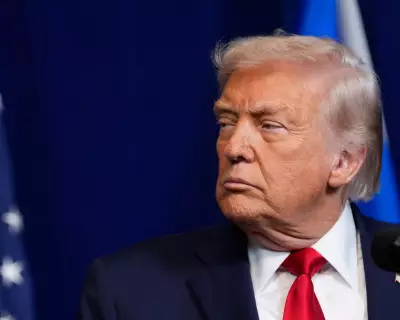
A cross-party group of MPs has issued a stark warning about the United Kingdom's fundamental ability to defend itself from military attack, casting a shadow over a major government announcement to build a new generation of arms factories.
A New Industrial Strategy for Defence
In a significant move to bolster the nation's military readiness, Defence Secretary John Healey has confirmed that at least 13 sites across the UK have been identified for new factories dedicated to producing munitions and military explosives. The government is committed to building at least six of these new munitions and energetics factories before the next general election.
This initiative, backed by a £1.5 billion investment committed in June, is expected to create a minimum of 1,000 new jobs. Mr Healey is expected to frame this as a crucial shift, stating the "new era of threat" also presents an economic opportunity for the UK's industrial heartlands.
Potential locations for these "factories of the future" include:
- Grangemouth in Scotland
- Teesside in north-east England
- Milford Haven in Wales
Parliamentary Alarm Over Defence Capabilities
The optimistic announcement from the government was immediately tempered by a sobering report from the Commons Defence Committee. The committee, chaired by Labour MP Tan Dhesi, delivered a blunt assessment, declaring that the UK lacks a plan for defending the homeland and its overseas territories.
Sir Dhesi pointed directly to the ongoing conflict in Europe, stating, "Putin’s brutal invasion of Ukraine, unrelenting disinformation campaigns, and repeated incursions into European airspace mean that we cannot afford to bury our heads in the sand." The report calls for a more direct engagement with the British public about the scale of the threat the country faces.
Drone Factories and European Diplomacy
Alongside the long-term plan for munitions plants, Mr Healey will also announce the immediate opening of two new drone factories this week in Plymouth and Swindon. He stated the government's overarching goal is to make "defence an engine for growth" and ensure the UK is "better ready to fight and better able to deter future conflicts."
This domestic push coincides with complex international negotiations. As Sir Keir Starmer met with German and French leaders in Berlin, reports emerged that the UK government is considering walking away from talks to join a £132 billion European defence fund over French demands for a £5 billion entry fee.
The Defence Secretary has also sought to reassure the public and armed forces, promising that Chancellor Rachel Reeves will use the upcoming Budget to prevent a return to the "hollowed out and underfunded" military of the past. However, the contrasting messages from the government and its own defence committee highlight the significant challenges in securing the nation's defence infrastructure for an increasingly volatile world.





